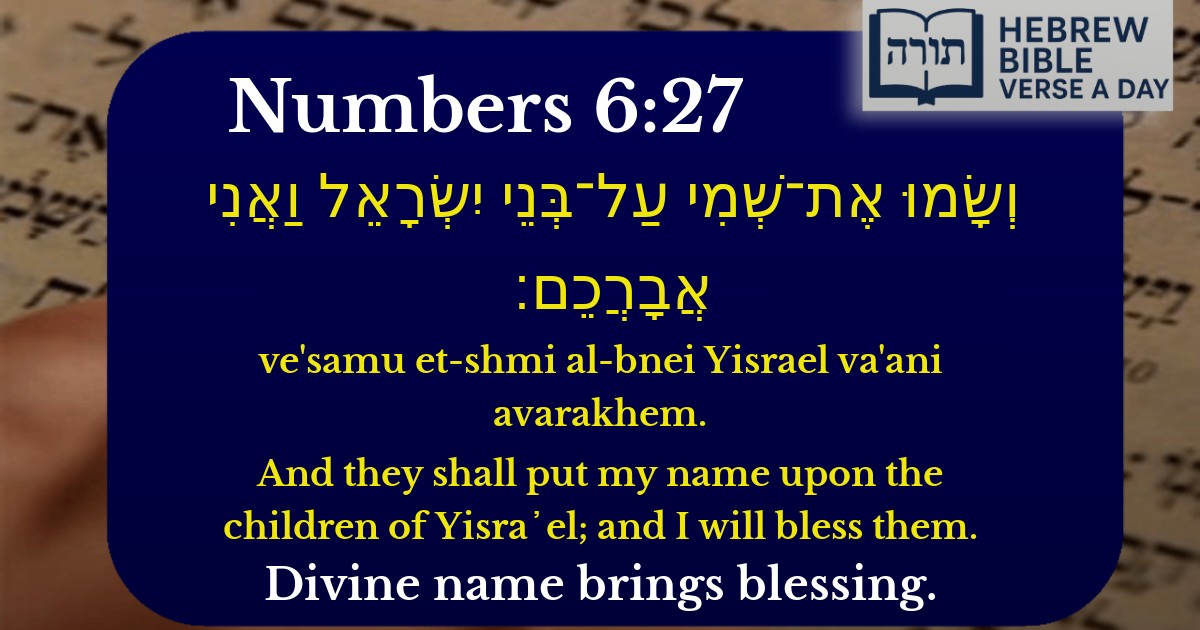Join Our Newsletter To Be Informed When New Videos Are Posted
Join the thousands of fellow Studends who rely on our videos to learn how to read the bible in Hebrew for free!
Hebrew Text
וְשָׂמוּ אֶת־שְׁמִי עַל־בְּנֵי יִשְׂרָאֵל וַאֲנִי אֲבָרֲכֵם׃
English Translation
And they shall put my name upon the children of Yisra᾽el; and I will bless them.
Transliteration
Ve'samu et-shmi al-bnei Yisrael va'ani avarakhem.
Hebrew Leining Text
וְשָׂמ֥וּ אֶת־שְׁמִ֖י עַל־בְּנֵ֣י יִשְׂרָאֵ֑ל וַאֲנִ֖י אֲבָרְכֵֽם׃ <span class="mam-spi-samekh">{ס}</span>
וְשָׂמ֥וּ אֶת־שְׁמִ֖י עַל־בְּנֵ֣י יִשְׂרָאֵ֑ל וַאֲנִ֖י אֲבָרְכֵֽם׃ {ס}
🎵 Listen to leining
Parasha Commentary
📚 Talmud Citations
This verse is quoted in the Talmud.
📖 Sotah 38b
The verse is cited in the discussion about the priestly blessing (Birkat Kohanim), where the Sages derive that the priests must mention God's name when blessing the people.
📖 Menachot 44a
Referenced in the context of the priestly garments and the importance of the divine name in the blessings given by the priests.


Context of the Verse
The verse (Bamidbar 6:27) concludes the Birkat Kohanim (Priestly Blessing), where Hashem instructs Aharon and his descendants to bless Bnei Yisrael with this sacred formula. The placement of Hashem's name upon the people signifies a divine connection and protection.
Meaning of "Put My Name Upon Bnei Yisrael"
The Promise of Divine Blessing
The second half of the verse—"and I will bless them"—underscores that the ultimate source of blessing is Hashem. Midrash Tanchuma (Naso 10) teaches that this assurance means Hashem will amplify the Kohanim's blessing with His own boundless benevolence.
Kabbalistic Insight
The Arizal (Pri Etz Chaim, Shaar HaKavanot) explains that the Kohanim’s recitation of the blessing channels divine light (shefa) into the world, aligning the physical and spiritual realms through the power of Hashem’s name.
Practical Halachic Implications